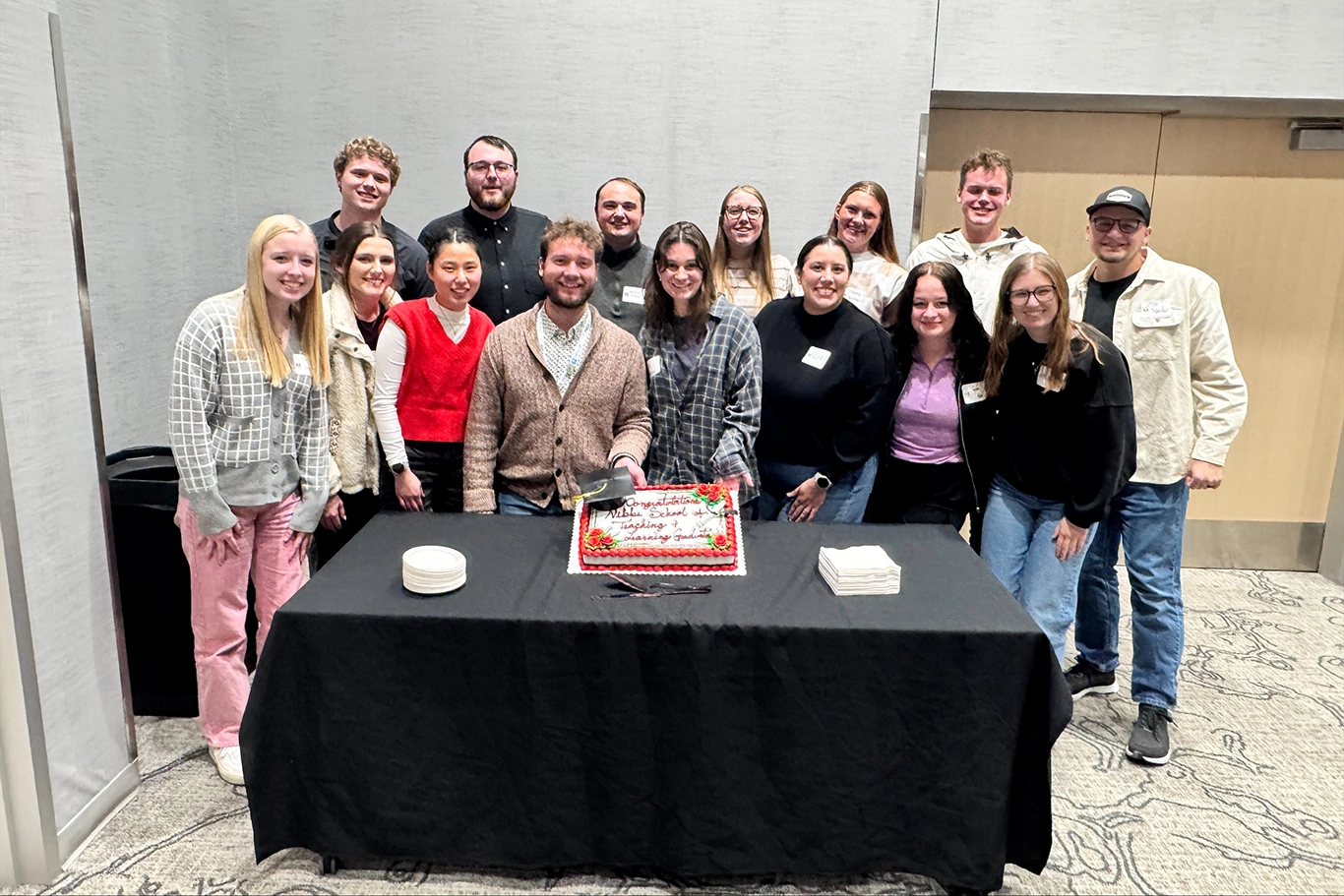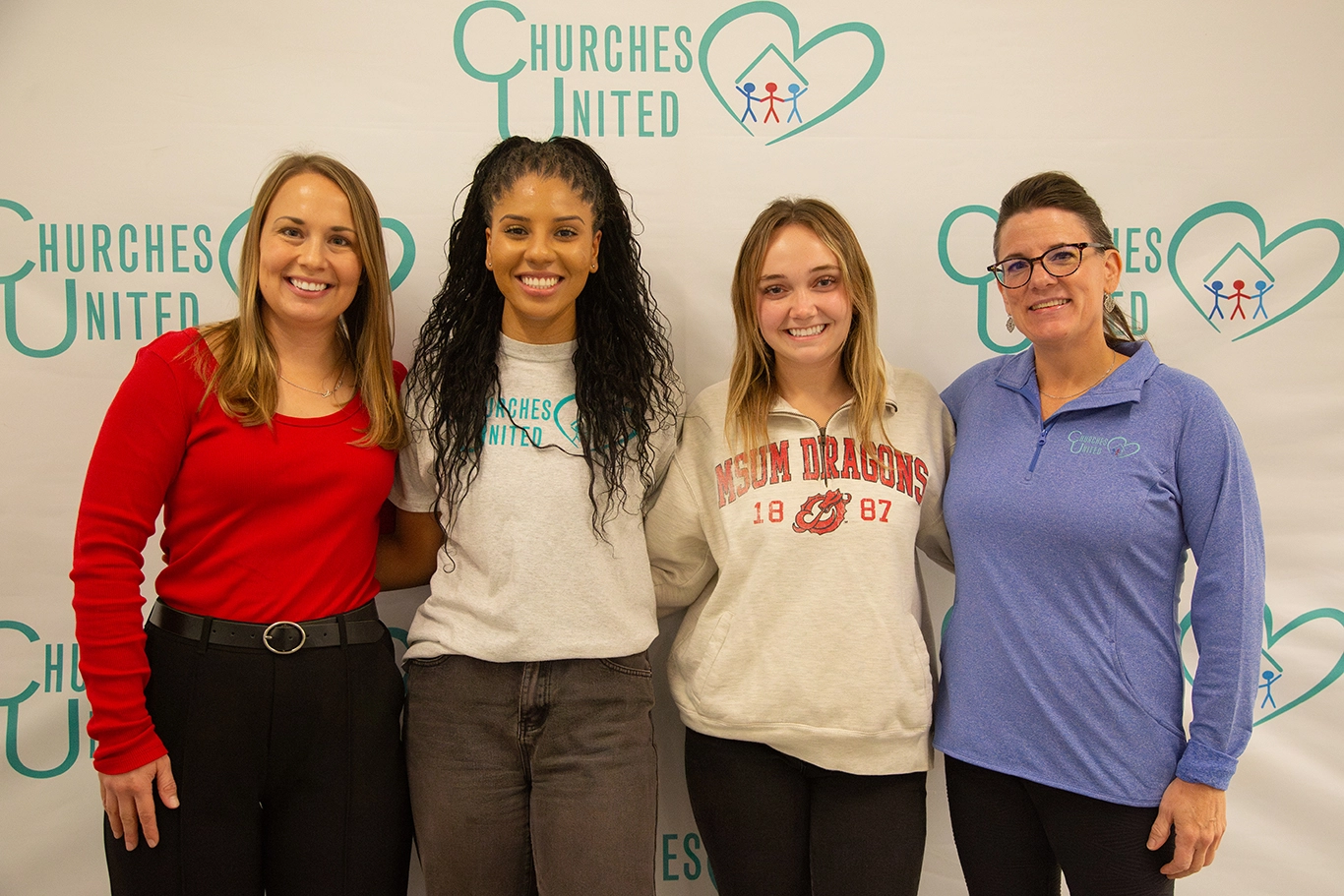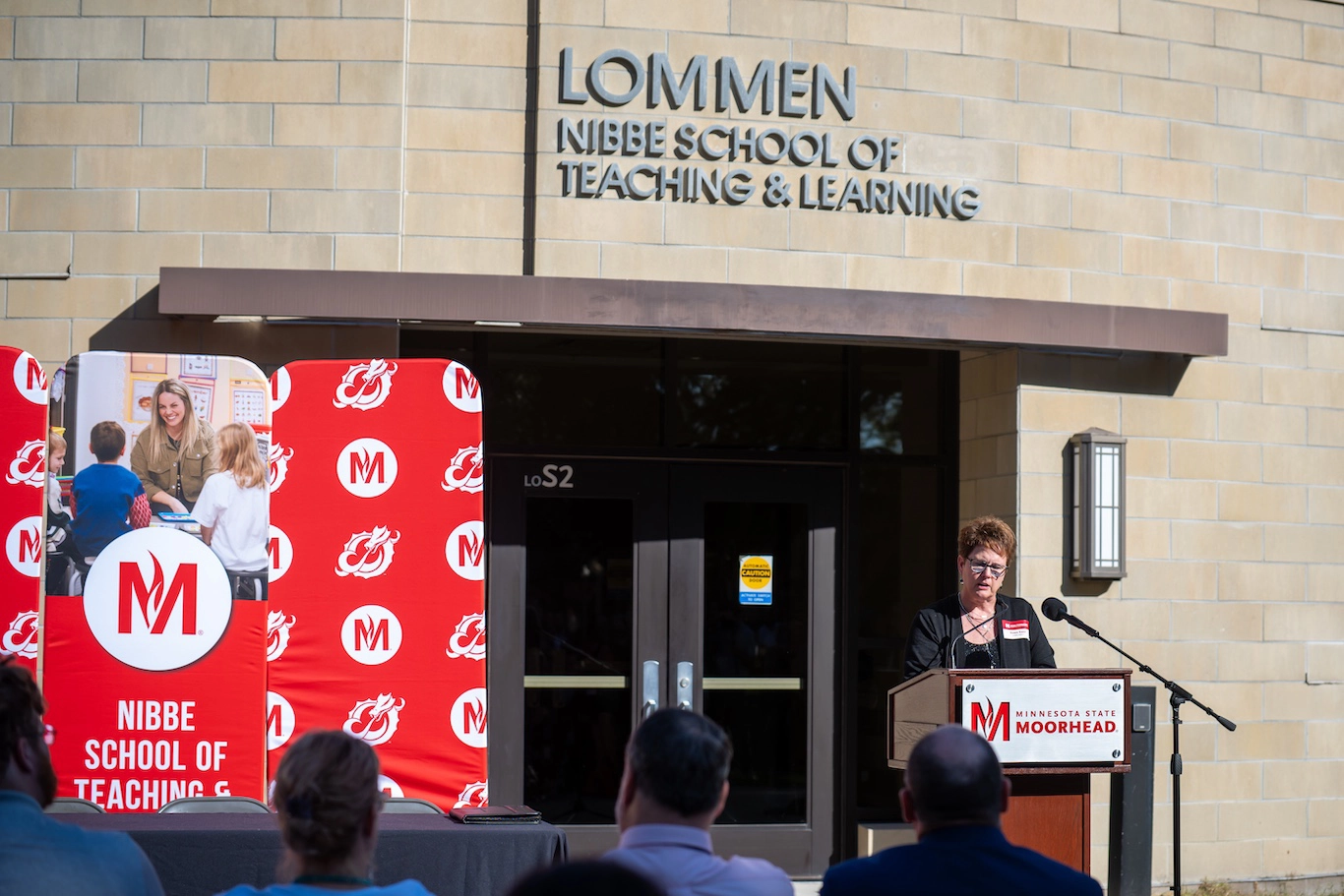Answering the Call
Her childhood dream was crushed.
It wasn’t a mean-spirited extinguishing of a dream. Her father, a pastor’s son who grew up in the Depression, simply equated ministry with poverty. He couldn’t support his daughter’s career aspiration because of the hardships he believed she’d experience. So, at 19, she married her high school sweetheart, raised five children, worked in manufacturing and engaged in music ministry at her church.
Like a flickering flame, the dream kindled in her heart.
“I had this unshakeable feeling I was not doing what I was supposed to be doing,” she said.
The dream stirred again when she enrolled in lay ministry training – GIFTS (Growing in Faith to Serve) – at her Fergus Falls church. After a week in class, she knew she was in trouble.
“It led to a period of fairly uncomfortable discernment about what I was supposed to be doing with my life,” she said.
The time had finally come for Sue (Peterson) Koesterman ’03 (philosophy) to follow her passion. There was no easy button. She didn’t have a college degree required to apply for a Master of Divinity (M.Div.). She hoped her work and life experience would get her into Luther Seminary’s (St. Paul, Minn.) Associate in Ministry program.
After the candidacy interview, she was asked why she wasn’t applying for the M.Div.
Five kids, eight years of school, financial debt, a home in Fergus Falls…well, the list was endless.
That wasn’t good enough for interviewer John Peshak, who told her, “We think God is calling you to the ordained ministry, and we think you need to get off the stick and get at it.”
Going all in
“I had crossed higher education off of my list because I didn’t think it was an option,” Koesterman said. “Over the years, I told myself I wasn’t college material.”
That changed. At age 39, with the support of her husband Mike (now married 38 years), Koesterman cashed in her 401K, quit her job, changed her family lifestyle, and started classes at Fergus Falls Community College (FFCC). At square one, but on a mission to achieve her lifelong goal of becoming a pastor.
A presidential scholar, she earned an associate degree at FFCC, then transferred to MSU Moorhead. At that time, she had two children in high school, two in middle school and one in grade school. Plus, she commuted from Fergus Falls to Moorhead several times a week. A busy family prevented her from getting involved in extracurricular activities, but she was a welcome student in the philosophy department.
“She wrote some of the best papers I ever received. She had a clear goal: to attend seminary and become a pastor,” said David Myers, retired MSUM professor of philosophy. “Sue came into our classes well-grounded in her religious beliefs and not threatened by questions about what she believed or why she believed it. Being an older student who had already thought things through worked to her advantage.”
MSUM was a homey place that was easy to navigate physically and academically.
“The faculty, especially in the Philosophy Department, were enormously helpful and supportive. The whole experience was very affirming,” she said.
A voracious learner and avid reader, Koesterman sprinted her way through MSUM in four semesters and completed the four-year seminary program in an astounding three years.
“I planned to slow down once I got into seminary, but it turns out I love learning, I enjoy school, and I have an aptitude for it.”
Heeding the call
When she turned her life upside down to pursue her passion, she expected the end result to be a call to a two- or three-point rural parish in Otter Tail County in the ELCA Northwestern Minnesota Synod. She expected to continue living in Fergus Falls and for life to get back to normal. Instead, she uprooted her family to accept a call at Elim Lutheran Church in downtown Fargo – across the street from the recycling center, on the walking route between the Salvation Army and the New Life Center, around the corner from The Northern strip club.
“That appealed to my sense of humor! I think about the ways in which God was at work behind the scenes that I didn’t understand at the time,” Koesterman said.
Working downtown made her wonder about the strangers passing by her window. She frequently visited with people from the neighborhood who were in crisis or experiencing homelessness. The North Dakota oil boom and a nationwide economic downturn created a perfect storm for an uptick in local homelessness in early 2010. She knew of several people who died of exposure.
Even though she was up to her arms managing her parish, a call for help went out to the faith community in 2010 to increase financial support to the shelters, open up church buildings for daytime warming space, or provide overnight emergency shelter.
“I remember thinking pretty clearly that I needed to do something, but my plate was already too full. I left the meeting with my mouth firmly closed,” Koesterman said. “I didn’t sleep at all that night.”
Perhaps it was her biblical training or knowing people would freeze to death if she, and others like her, didn’t step up to the plate, but she volunteered Elim to be one of the first churches to provide overflow shelter for the homeless. She was one of three founding coordinators of the F-M Sheltering Churches project, which grew to 35 participants. She knew the local shelter providers, law enforcement officers, city officials. She advocated for more affordable housing solutions and promoted the landlord risk mitigation fund.
“The Machiavellian hand of God put me in the direct service sphere with homelessness that I wouldn't have had otherwise and gave me an understanding of this really complicated issue,” Koesterman said. “It aligned a deep-rooted passion for social justice ministry with things that are tangible.”
The Sheltering Churches project was phased out last winter, so she expected to resume pastoral ministry at 100 percent.
So, when one, two, then three people asked her to consider applying for the vacant executive director position at Churches United for the Homeless, one would think she’d have jumped at the opportunity. Nope. She was a parish pastor, living her lifelong dream. However, with a little extra nudging (maybe from above), she applied for the position.
“I realize looking back that God’s been lining things up for a long time in ways that brought me to this point. I have no idea what the future holds, but this is where I belong now,” said Koesterman, who has been at the helm of Churches United since May 2016.
Ministering the homeless
As leader of Fargo-Moorhead’s largest homeless shelter, Koesterman juggles multiple hats managing a talented 27-member team. She says first-time homelessness has declined in Fargo-Moorhead, but overall homelessness isn’t down significantly. Generally, the homeless population is increasingly vulnerable and older, with some guests in their 90s.
“We see more folks in the 55 to 64 age range who have aged into homelessness or aged out of their supports,” Koesterman said. Perhaps they became ill and lost their job or have multiple medical conditions or persistent mental illness, which caused them to lose housing. Or maybe they lost a spouse or had been living with a child, and either through death or separation, the family came to an end.
Koesterman is leading positive change
The average length of stay has declined. Since Koesterman’s arrival, the average stay has dropped from 90 days to 32 days. “Motivated by abundant compassion, we used to put people wherever we needed to in the building, but it didn’t serve people well. Our case manager couldn’t effectively work to help people into solutions,” Koesterman said.
The cycle of homelessness has been reduced. “We serve as a bridge between homelessness and housing stability. The greatest chance of long-term success is to place guests in a housing situation where they have case management services available, so they don’t keep cycling into homelessness. That has been achieved by reducing the number of overflow guests.”
The 43-unit Bright Sky Apartment complex in north Moorhead will be completed in February. The $8.5 million project will include apartments with up to four-bedrooms, as well as a community space for homeless individuals and families.
Meyers, who is also program director of the Center for Interfaith Projects (Fargo), said, “Sue has a vision for Churches United that is religiously inclusive. Recognizing that people experiencing homelessness are becoming more religiously diverse, like the rest of the Fargo-Moorhead population, she proposed creating an interfaith chapel that would show hospitality to people of all faiths and those of no faith.”
The work is daunting and sacred.
“Each person has inherent value and worth simply by virtue of being human, and as such, they are entitled to warmth and care and shelter and compassion,” Koesterman said. “We provide those things in a way that respects human dignity. What we do matters.”
This story was first published in Moorhead Magazine, Spring 2018.
Make Sure Your Story Is Heard
Let us know how your life has been changed by being a Dragon: tell us your Minnesota State Moorhead story today!
Send Us Your Story


